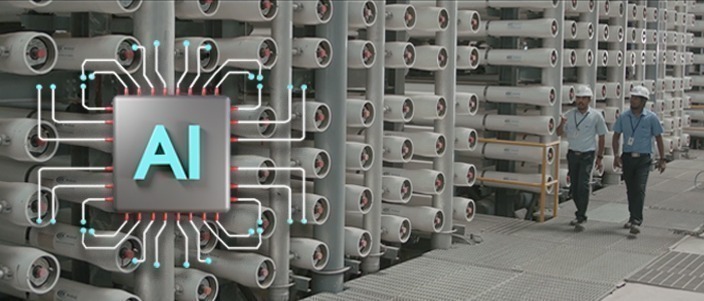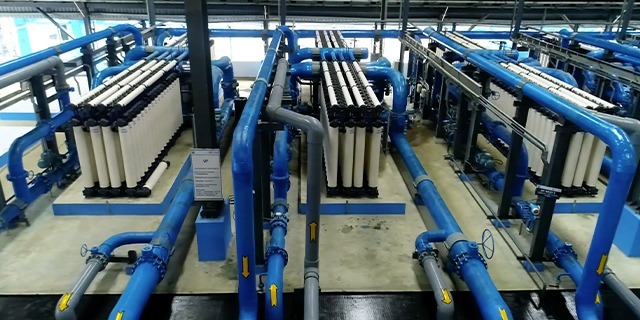The Digital Wave – Fusion of AI with Water Treatment
31 October 2023 Submitted by Yaswanth Anantaneni

In the current era of rapid technological advancements, Water industry has also been witnessing a surge of innovations based on Artificial Intelligence. Artificial Intelligence, driven by machine learning and data analysis, is playing a pivotal role in reshaping water treatment processes. This fusion of Artificial Intelligence with Water Treatment is bringing in a transformative wave of digital innovation, which is redefining the conventional way of designing and operating treatment plants, resulting to make the process more efficient, sustainable, and data-driven.
Traditionally, water treatment plants have relied on human intelligence, where design recommendations and operating decisions are made through manual analysis of historical data using conventional technologies and software. While these methods have been effective, they are often labor-intensive and limited in their ability to provide real-time insights, more options and predictive capabilities. However, when we combine Human Intelligence and Historical Data with Artificial Intelligence, decisions become data-driven, where AI algorithms can analyze vast amounts of data, identify patterns, and make analysis that might escape human observation.
Benefits of AI integration in Water Treatment are substantial
- Design Efficiency: AI Algorithms and Decision Trees can provide the most accurate recommendations, analyzing the historical design data, saving resources and time while allowing us to select the best option based on our requirements
- Operations Efficiency: AI can optimize the treatment process by predicting water quality parameters, adjusting chemical dosages, and managing energy consumption in real-time
- Predictive Maintenance: AI transforms maintenance from scheduled to predictive, predicting equipment failures and recommend proactive maintenance, minimizing downtime and extending the life of equipment
- Real-time Monitoring: A continuous real-time monitoring of water quality, allowing for early detection of contamination events and prompt responses to ensure the safety of treated water
- Cost Savings: AI driven optimizations lead to cost savings through reduced energy consumption, optimized resource utilization, and more efficient treatment processes
- Sustainability: This will aid in sustainable water treatment by reducing waste, conserving resources, and minimizing the environmental impact of treatment processes.
Challenges and the Role of Human Expertise
One major challenge associated with AI based solutions is the input data. The accuracy and quality of the data used for training and decision-making are of crucial importance. These systems heavily rely on historical and real-time data to make predictions, optimize processes, and ensure the safety and efficiency of water treatment plants. If the input data is inaccurate, incomplete, or biased, it can lead to incorrect recommendations and less than ideal decisions.
For example, if water quality data used by the AI model contains errors or is not representative of the actual conditions, the model’s predictions may be unreliable. Similarly, if the training data doesn’t cover a wide range of scenarios and historical data, the AI algorithm might struggle to address uncommon situations.
This is where human expertise plays a crucial role, in data validation of input data and decision validation of the given recommendations, as process experts can identify suboptimal recommendations and make the final decisions for implementing based on their domain knowledge and experience. Additionally, they can continuously refine AI models by providing feedback and updating the algorithms to adapt to changing conditions and evolving industry standards.
Way Forward
While we may not currently have a AI technology that can fully automate the treatment plants without human intervention, that day is not far off. Looking ahead, the future of AI in water treatment facilities is promising. As technology continues to advance, we can expect more sophisticated solutions, including autonomous treatment systems, deeper integration with renewable energy sources, and even more advanced predictive capabilities for water quality and infrastructure maintenance.
AI is at the forefront of reshaping water industry, particularly in sewage treatment, wastewater treatment, desalination, and water reuse plants. By utilizing the power of AI, we have the potential to create more efficient, sustainable, and resilient water treatment processes, ensuring the availability of safe and clean water for generations to come.







